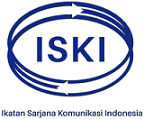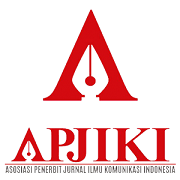#ReformasiDikorupsi: Emergence and Failure
Abstract
Asbtrak
September 2019 menandai protes besar terhadap negara di Indonesia dan sering disebut sebagai protes terbesar sejak Reformasi, dari protes tersebut muncul #ReformasiDikorupsi, tetapi mereka gagal untuk mempertahankan resiliensi terhadap negara. Tulisan ini mencoba menjawab dua pertanyaan, pertama bagaimana dan mengapa #ReformasiDikorupsi muncul, kedua menapa #ReformasiDikorupsi gagal mempertahankan resiliensinya di hadapan negara. Tulisan ini akan menggunakan perspektif Teori Diskursus Politik dan Analisis Diskursus untuk menganalisa data guna menjawab dua pertanyaan di atas. Tulisan ini berargumen bahwa #ReformasiDikorupsi muncul dari tuntutan-tuntutan yang diabaikan oleh negara dan konstruksi #ReformasiDikorupsi dumungkinkan oleh satu kejadian dislokasi yang dapat dilihat sebagai upaya pelemahan KPK oleh negara dan rencana merevisi RKUHP yang secara langsung “mengancam” berbagai identitas. Kemudian, tulisan ini juga berargumen bahwa #ReformasiDikorupsi gagal mempertahankan resiliensinya karena hubungan mereka yang tidak jelas dan ambigu pada negara, atau hubungan antagonisme semu terhadap negara
Abstract
September 2019 marks a large mass protest towards the state in Indonesia and is often referred to as the largest mass protest since the Reformasi, from that mass protest #ReformasiDikorupsi emerges, yet it failed to maintain its resiliency to oppose the state. This article seeks to answer two questions, first how and why #ReformasiDikorupsi emerges, second why #ReformasiDikorupsi failed to maintain their resiliency towards the state. This article utilized the perspective of Political Discourse Theory and Discourse Analysis to analyze the data to answer those questions. This article argued that #ReformasiDikorupsi emerged from the demands that had been ignored by the state and the construction of #ReformasiDikorupsi made possible by a dislocation event which can be seen as an attempt to weaken KPK by the state and a plan to revise the criminal codebook which directly “threaten” vast amount of identity. Furthermore, this article also argued that #ReformasiDikorupsi failed to maintain their resiliency towards the state due to their unclear and ambiguous relation towards the state, or pseudo-antagonistic relationship towards the state.
Keywords
Full Text:
PDFReferences
Andersen, N. Å. (2003). Discursive analytical strategies: Understanding Foucault, Koselleck, Laclau, Luhmann. Bristol: Policy Press.
Ekayanta, F. B. (2019). Konstruksi Diskursus Pembangunan Infrastruktur Era Pemerintahan Joko Widodo - Jusuf Kalla. Depok: Universitas Indonesia.
Glynos, J., & Howarth, D. (2007). Logics of Critical Explanation in Social and Political Theory. London: Routledge.
Groppo, A. (2009). The Two Princes Juan D. Perón and Getulio Vargas: a Comparative Study of Latin American Populism. Carlos Pellegrini: Eduvim.
Howarth, D., Norval, A. J., & Stravrakakis, Y. (2000). Discourse Theory and Political Analysis: Identities, Hegemonies, and Social Change. Manchester: Manchester University Press.
Jorgensen, M., & Philips, L. J. (2002). Discourse Analysis as Theory and Method. London: Sage.
Laclau, E. (1996). Emancipation(s). London: Verso.
Laclau, E. (2005). On Populist Reason. London: Verso.
Laclau, E., & Mouffe, C. (2008). Hegemoni dan Strategi Sosialis. Yogyakarta: Resist Book.
Mouffe, C. (2005). On The Political. London: Routledge.
Raffiudin, R. (Ed.). (2014). Paduan Praktis Metode Penelitian Sosial. Depok: Pusat Kajian Politik FISIP UI.
Rahmawati, M., & Eddyono, S. W. (2017). Menuju Penguatan Hak Korban dalam RUU Penghapusan Kekerasan Seksual. Jakarta: Institute for Criminal Justice Reform.
Robet, R. (2008). Politik Hak Asasi Manusia dan Transisi di Indonesia: Sebuah Tinjauan Kritis. Jakarta: ELSAM.
Suwana, F. (2018). Digital Media and Indonesian Young People: Building Sustainable Democratic Institutions and Practices. Queensland: Queensland University of Techlology.
Hutagalung, D. (2008). Hegemoni dan Demokrasi Radikal-Prulal: Membaca Laclau dan Mouffe. In E. Laclau, & C. Mouffe, Hegemoni dan Strategi Sosialis (p. xvii). Yogyakarta: Resist Book.
Laclau, E. (2007). Discourse. In R. E. Goodin, P. Pettit, & T. Pogge, Companion to Contemporary Political Philosophy (p. 545). London: Blackwell Publishing.
Fuadi, A. (2020). Social media power for protest in Indonesia: The Yogyakarta's #gejayanmemanggil case study. Jurnal Studi Komunikasi, Vol 4. No 3 November 2020, 541-552.
Krips, H. (2006). Interpelation, Populism, and Perversion: Althusser, Laclau und Lacan. Filozofski vestnik Volume/Letnik XXVII • Number/Številka 2, 81-101.
Mietzner, M. (2012). Indonesia's democratic stagnation: anti-reformist elites and resilient civil society. Democratization, 2019-229.
Mietzner, M. (2019). Authoritarian Innovations in Indonesia: Electoral Narrowing, Identity Politics and Executive Illiberalism. Democratizaiton.
Nofirma, S., Nurmadi, A., Dewi, D. K., & Salahudin. (2020). Cyber-activism on the dissemination of #Gejayanmemanggil: Yogyakarta’s Student Movement. Jurnal Studi Komunikasi, Vol 4. No. 1 Maret 2020, 103-116.
Rear, D. (2013). Laclau and Mouffe’s Discourse Theory and Fairclough's Critical Discourse Analysis: An Introduction and Comparison. Unpublished Paper.
Wasisto, A., & Prayudi. (2019). Gerakan Mahasiswa dan Upaya Mengurai Polemik Tuntutan. Info Singkat Vol. XI, No.19/I/Puslit/Oktober/2019.
Warbunton, E., & Aspinall, E. (2019). Explaining Indonesia’s Democratic Regression: Structure, Agency and Popular Opinion. Contemporary Southeast Asia 41, No. 2, 255-285.
Jati, W. R. (2017). Investigating the Political Base of Indonesia Middle Class: A Comparative Study. Komunitas: International Journal of Indonesian Society and Culture. doi:DOI:10.15294/komunitas.v9i2.6273
Power, T. P. (2018). Jokowi's Authoritarian Turn and Indonesia's Democratic Decline. Bulletin of Indonesian Economic Studies, 207-338. doi:10.1080/00074918.2018.1549918
Howarth, D., Glynos, J., Flitcroft, R., Love, C., Roussos, K., & Vazques, J. (2021). Logics, Discourse Theory and Methods: Advances, Challenges and Ways Forward. Journal of Language and Politics 20 (1). Retrieved from https://www.jbe-platform.com/content/journals/10.1075/jlp.20048.gly
DOI: http://dx.doi.org/10.30829/komunikologi.v6i1.10527
Refbacks
- There are currently no refbacks.
Copyright (c) 2022 Luthfi Diar Adhipermana, Nur Iman Subono

This work is licensed under a Creative Commons Attribution-ShareAlike 4.0 International License.
INDEXING BY :
======================================
Published by :
Fakultas Ilmu Sosial UIN Sumatera Utara
Medan, Indonesia
Editorial Office :
Jl. Lap. Golf No.120, Kp. Tengah, Kec. Pancur Batu, Kabupaten Deli Serdang, Sumatera Utara 20353

Komunikologi: Jurnal Pengembangan Ilmu Komunikasi dan Sosial by Program Studi Ilmu Komunikasi UIN Sumatera Utara Medan is licensed under a Creative Commons Attribution-ShareAlike 4.0 International License
Based on a work at http://jurnal.uinsu.ac.id/index.php/KOMUNIKOLOGI/index





























